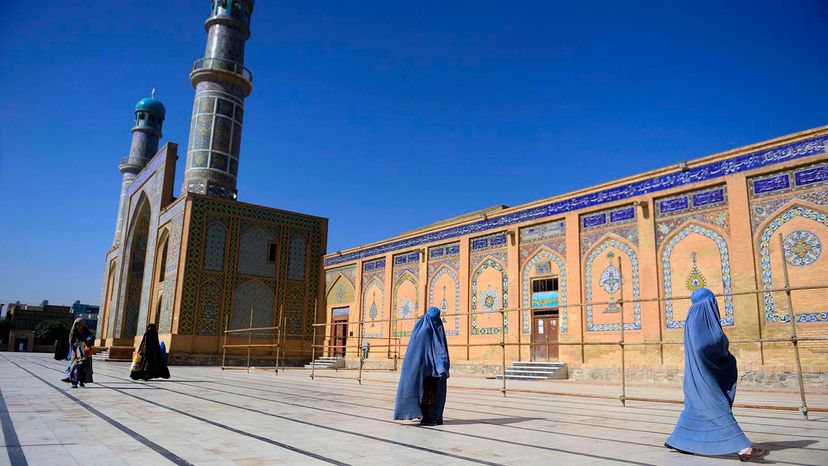Burqas and the Quran

In the Quran, policies for women's dress are mentioned in several passages. Here are excerpts from two of the most often-cited scriptures.
Chapter 24, Verses 30-31: Say to the believing men that they should lower their gaze and guard their modesty: that will make for greater purity for them: And Allah is well acquainted with all that they do. And say to the believing women that they should lower their gaze and guard their modesty; that they should not display their beauty and ornaments except what must ordinarily appear thereof.
Islamic scholars generally agree that faithful Muslims of any gender must maintain modest dress. Men should be covered between the navel and the knee, and according to hadith, they are directed not to wear silk.
Advertisement
But there is debate over appropriate dress for women because of the words "except what must ordinarily appear thereof." Some believe that the hands and the face must ordinarily appear in the course of a woman going about her day, and that a full face veil isn't required. After all, if Muhammad meant for women to be completely covered, then why would men be instructed in the very same passage to avert their gaze in the name of modesty? If a woman was fully covered, there would be no need for a man to look away. People who follow this logic deem a head covering necessary, but consider a niqab or burqa unnecessary [source: BBC].
A minority of scholars, though, believe that since full covering is possible, faithful women should cover their face and hands completely. Full covering, including veiling of the face, is interpreted as a sign of piety. Regardless of how one chooses to interpret the passage, modesty and devotion play important roles in Islam.
It's worth noting that another passage in the Quran includes a list of people in whose presence a woman may go unveiled. These include husbands, brothers, fathers, enslaved people and other women. What constitutes women's awrah (the intimate parts of the body that must be covered) in front of non-Muslim women is a topic of debate. Many scholars posit that wearing a headscarf or full-body veil is not mandated by Islamic law, and that recommendations on veiling must depend on cultural norms.
Next we'll consider some reasons why women wear full-body veils.